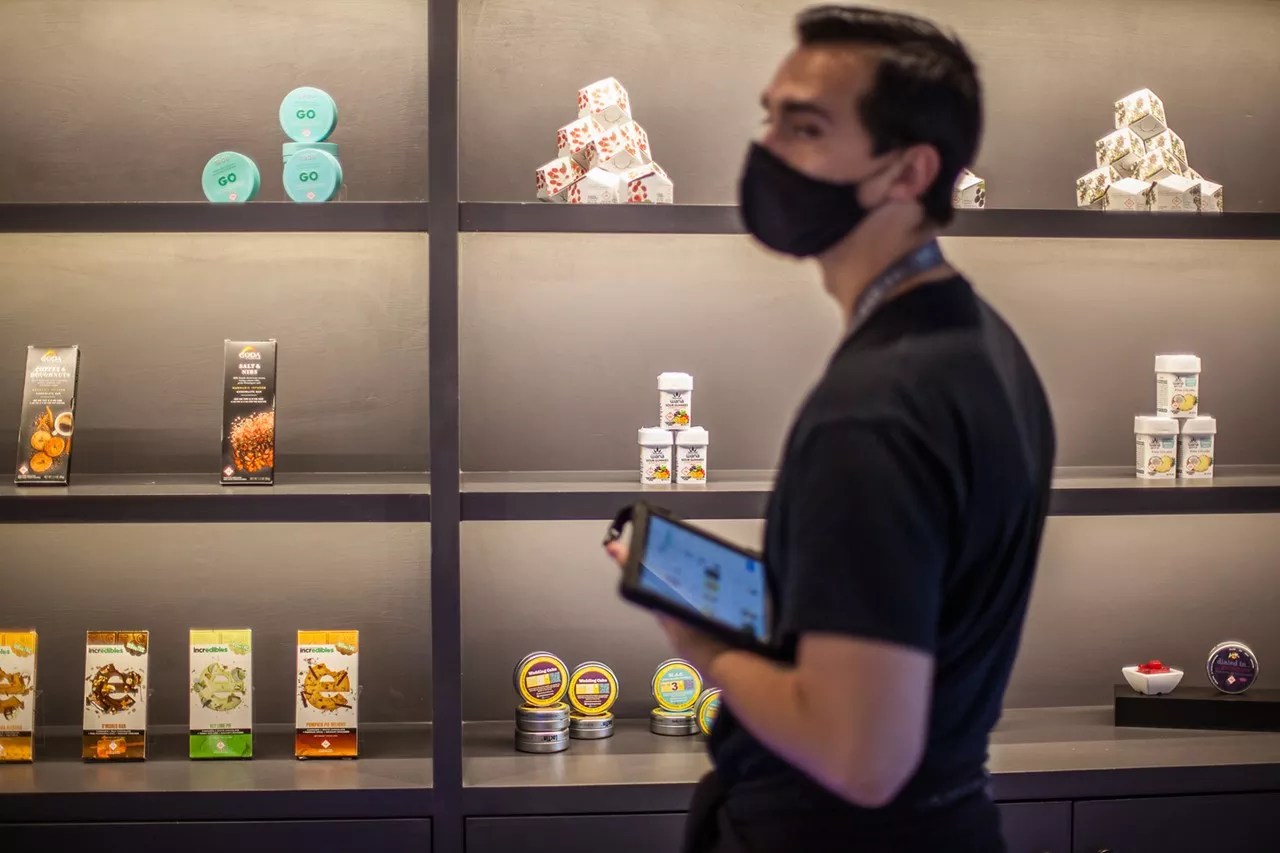
Jacqueline Collins

Audio By Carbonatix
Medical marijuana telemedicine and online dispensary payments – two business practices implemented during the COVID-19 pandemic – could soon disappear.
Enacted through executive orders issued by Governor Jared Polis in March 2020, the moves were designed to help create more social distancing for retail marijuana shoppers and medical patients. Since those orders would eventually end, however, state representative Matt Gray wanted to make the temporary rules permanent, and introduced House Bill 1058 in February.
“This has been the law for quite a while now,” Gray said to fellow lawmakers on the House Finance Committee before the bill went to a vote May 20. “We have not seen the sky fall.”
Telemedicine is allowed for a wide range of physician consultations in Colorado, but medical marijuana visits are still banned under state law. Pre-ordering marijuana products that are later paid for at the dispensary is already legal in Colorado, but paying for recreational orders online with credit, debit or pre-paid cards is banned under current law. (Medical patients are allowed to pay for their orders online, however.)
But despite the two temporary practices running smoothly for nearly fourteen months, Colorado will return to prohibiting both when Polis’s executive orders expire, because the House Finance Committee voted to postpone HB 1058 indefinitely by a 7-4 vote.
Gray’s bill became mired in an ongoing debate over the potency of commercial products and their effect on children, now playing out in another proposal for new medical marijuana and concentrate restrictions. “This bill has been caught up in a wave of more controversy that has to do with things that are not in this bill,” Gray told the committee.
Although no research has studied a connection between teenage medical marijuana patients and illicit youth use, rumors persist. According to state Medical Marijuana Registry data, around 4,000 patients in Colorado are between the ages of eighteen and twenty, and another 150 patients are between eleven and seventeen. Those numbers, as well as months of lobbying and complaints from the opposition, were enough to swing the committee against Gray’s bill.
Representative Cathy Kipp acknowledged the benefits of telemedicine, and even said she’d vote for Gray’s bill if it were on the House floor – but said she couldn’t support the effort in a smaller committee.
“I think there is, unfortunately in the marijuana world, a lot of bad actors,” she said before voting against the measure. “The abuses that exist in the system right now are just too great,”
Gray had amended the bill last week to require eighteen-to-twenty-year-olds to secure two doctor recommendations and a medical-record review before receiving medical marijuana approval via telemedicine, but that wasn’t enough for committee chair Shannon Bird, who said she still had “concerns about there being appropriate guardrails.”
The executive orders allowing telemedicine and online purchasing were renewed by Polis for another thirty days on May 12. Will he extend them again as Colorado loosens COVID-19 restrictions? “The legislature has spoken,” notes one source close to the bill effort.
Although telemedicine and online payments have been rejected by lawmakers, some new business practices enacted during the pandemic were successfully adopted by the state Marijuana Enforcement Division without legislative approval. They include a rule allowing takeout marijuana sales through curbside transactions, drive-thru and walk-up windows to remain after Polis’s executive order expires.